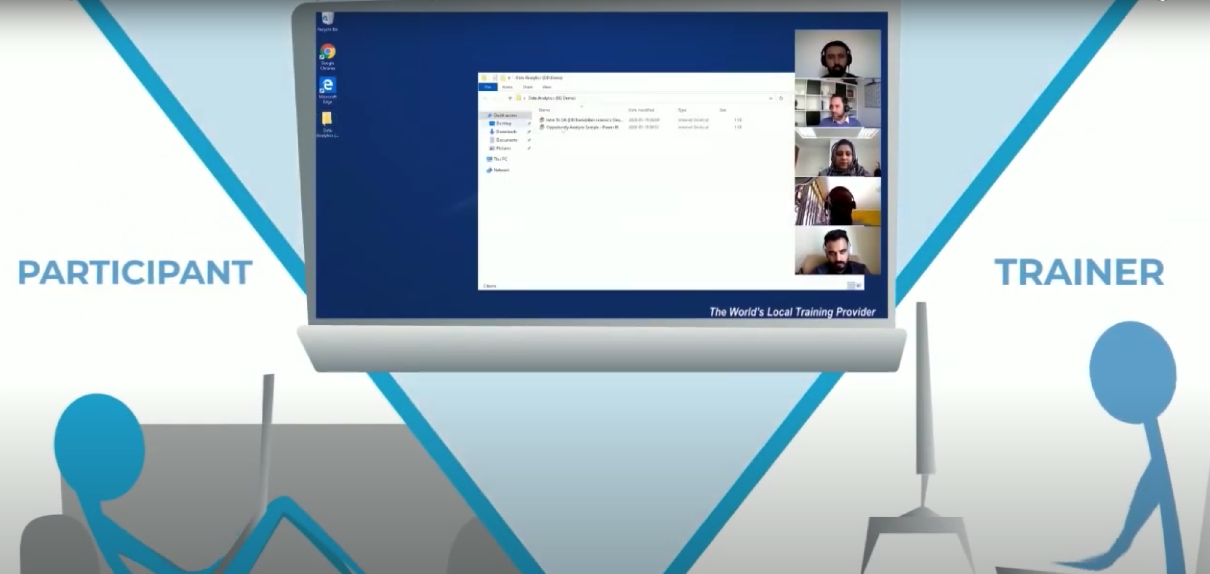
Jitsi Meet lets you stay in touch with all your teams, be they family, friends, or colleagues. Instant video conferences, efficiently adapting to your scale. Unlimited users: There are no artificial restrictions on the number of users or conference participants. Server power and bandwidth are the only limiting factors. Note that guest.jitsi-meet.example.com is internal to Jitsi, and you do not need to (and should not) create a DNS record for it, or generate an SSL/TLS certificate, or do any web server configuration. While it is internal, you should still replace jitsi-meet.example.com with your hostname. Jitsi Meet configuration.
It is possible to allow only authenticated users to create new conferencerooms. Whenever a new room is about to be created, Jitsi Meet will prompt fora user name and password. After the room is created, others will be able to joinfrom anonymous domain. Here's what has to be configured:
Prosody configuration
If you have installed Jitsi Meet from the Debian package, these changes should be made in /etc/prosody/conf.avail/[your-hostname].cfg.lua
Enable authentication
Inside the VirtualHost '[your-hostname]' block, replace anonymous authentication with hashed password authentication:
Replace jitsi-meet.example.com with your hostname.
Enable anonymous login for guests
Add this block after the previous VirtualHost to enable the anonymous login method for guests:
Note that guest.jitsi-meet.example.com is internal to Jitsi, and you do not need to (and should not) create a DNS record for it, or generate an SSL/TLS certificate, or do any web server configuration. While it is internal, you should still replace jitsi-meet.example.com with your hostname.
Jitsi Meet configuration
In config.js, the anonymousdomain options has to be set.
If you have installed jitsi-meet from the Debian package, these changes should be made in /etc/jitsi/meet/[your-hostname]-config.js.
Jicofo configuration
When running Jicofo, specify your main domain in an additional configurationproperty. Jicofo will accept conference allocation requests only from theauthenticated domain.
Jitsi Meet Ipad Browser
If you have installed Jicofo from the Debian package, this should go directly on a new line inthe /etc/jitsi/jicofo/sip-communicator.properties:
When using token based authentication, the URL must use EXT_JWT as the scheme instead:

Create users in Prosody (internal auth)

Jitsi Meet lets you stay in touch with all your teams, be they family, friends, or colleagues. Instant video conferences, efficiently adapting to your scale. Unlimited users: There are no artificial restrictions on the number of users or conference participants. Server power and bandwidth are the only limiting factors. Note that guest.jitsi-meet.example.com is internal to Jitsi, and you do not need to (and should not) create a DNS record for it, or generate an SSL/TLS certificate, or do any web server configuration. While it is internal, you should still replace jitsi-meet.example.com with your hostname. Jitsi Meet configuration.
It is possible to allow only authenticated users to create new conferencerooms. Whenever a new room is about to be created, Jitsi Meet will prompt fora user name and password. After the room is created, others will be able to joinfrom anonymous domain. Here's what has to be configured:
Prosody configuration
If you have installed Jitsi Meet from the Debian package, these changes should be made in /etc/prosody/conf.avail/[your-hostname].cfg.lua
Enable authentication
Inside the VirtualHost '[your-hostname]' block, replace anonymous authentication with hashed password authentication:
Replace jitsi-meet.example.com with your hostname.
Enable anonymous login for guests
Add this block after the previous VirtualHost to enable the anonymous login method for guests:
Note that guest.jitsi-meet.example.com is internal to Jitsi, and you do not need to (and should not) create a DNS record for it, or generate an SSL/TLS certificate, or do any web server configuration. While it is internal, you should still replace jitsi-meet.example.com with your hostname.
Jitsi Meet configuration
In config.js, the anonymousdomain options has to be set.
If you have installed jitsi-meet from the Debian package, these changes should be made in /etc/jitsi/meet/[your-hostname]-config.js.
Jicofo configuration
When running Jicofo, specify your main domain in an additional configurationproperty. Jicofo will accept conference allocation requests only from theauthenticated domain.
Jitsi Meet Ipad Browser
If you have installed Jicofo from the Debian package, this should go directly on a new line inthe /etc/jitsi/jicofo/sip-communicator.properties:
When using token based authentication, the URL must use EXT_JWT as the scheme instead:
Create users in Prosody (internal auth)
Finally, run prosodyctl to create a user in Prosody:
and then restart prosody, jicofo and jitsi-videobridge2
Optional: Jigasi configuration
Enable Authentication
If you are using Jigasi, set it to authenticate by editing the following lines in /etc/jitsi/jigasi/sip-communicator.properties:
Jitsi Meet Ipad Bildschirm Teilen
Note that the password is the actual plaintext password, not a base64 encoding.
Debugging
If you experience problems with a certificate chain, you may need to uncomment the following line, also in sip-communicator.properties:
This should only be used for testing/debugging purposes, or in controlled environments. If you confirm that this is the problem, you should then solve it in another way (e.g. get a signed certificate for Prosody, or add the particular certificate to Jigasi's trust store).

